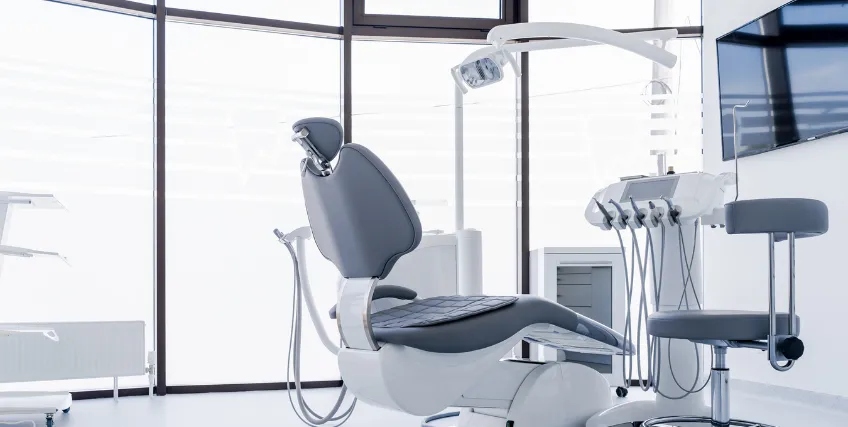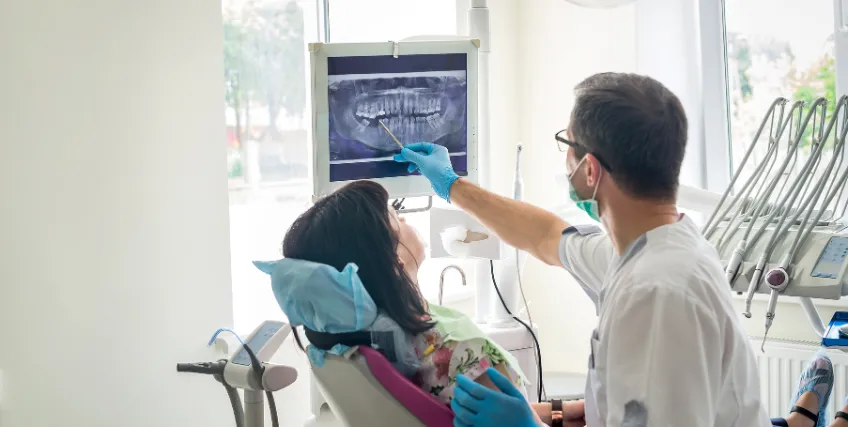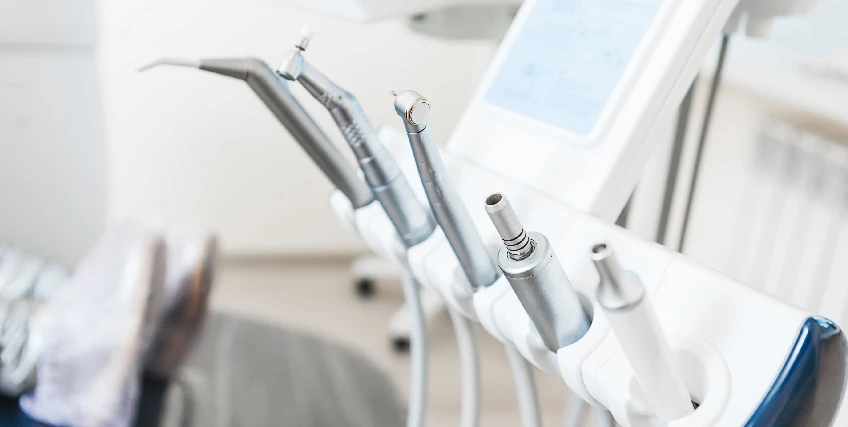Affordable Dental Care Loans Solutions for Major Procedures
August 29, 2025 | Last Updated on: August 29, 2025

Running a dental practice requires balancing dental expenses, operational costs, and patient care. Major dental procedures such as dental implants, veneers, and root canals often demand significant upfront investment from dental offices.
However, implementing dental care loans, dental credit financing, and other financing options helps practices maintain steady cash flow while supporting patient access to dental treatment. Moreover, offering multiple payment options, including monthly payments, installments, and interest-free periods, allows practices to expand services without affecting daily revenue.
This blog explores business-focused dental care solutions, types of dental care loans, lender expectations, and strategies for implementing dental financing options in your practice.
The Challenges of Dental Care Costs
Operating a dental office comes with high financial demands. It requires different types of equipment such as x-rays, dental chairs, and aligners labs is expensive. Additionally, day-to-day dental expenses, from checkups and fillings to teeth whitening, also add up.
High out-of-pocket costs for patients indirectly affect revenue, as delayed procedures reduce cash flow. Even with dental insurance, coverage may exclude cosmetic dentistry, veneers, or complex dental surgery loans. Dental business owners must carefully plan finances to maintain stability while expanding services.
Example: A dental office plans to introduce orthodontics and veneers labs, but without access to business loans for dental care, such an investment could strain daily operations.
Why Dental Business Owners Should Care
Effective financial planning directly impacts the growth, profitability, and operational efficiency of a dental practice. Moreover, considering dental care loans allow practices to manage high-cost procedures while maintaining predictable cash flow and reducing reliance on credit cards or delayed payments.
Implementing structured payment plans and dental credit financing can strengthen financial stability, support expansion projects, and increase the practice’s ability to invest in equipment, staff, and dental health services.
Key business benefits of dental care loans include:
- Closing gaps in revenue collection from high-cost procedures
- Maintaining steady cash flow for operational needs
- Supporting strategic investments in equipment and dental offices
- Enhancing the practice’s competitiveness and reputation in the dental market
What Are Dental Care Loans
Dental care loans for businesses are financing solutions designed to support practice operations and expansion. Unlike personal loans or credit card financing for patients, these loans fund the practice itself. They allow dental offices to upgrade equipment, manage operational costs, and offer dental financing options without disrupting daily operations.
Business-focused dental care loans can support:
- Equipment purchases for x-rays, veneers labs, and aligners
- Expansion of dental offices or treatment rooms
- Operational costs like staff salaries, supplies, and utilities
Example: A practice uses a dental surgery loan to purchase a new root canal unit. This allows the procedure to be offered immediately while payments are spread over time.
Types of Dental Care Loans
Here are different types of dental care loans to consider for business owners:
Term Loans
Term loans provide a lump sum that is repaid over a fixed period with predetermined interest rates. Dental practices can use term loans to purchase x-ray machines, upgrade dental chairs, or expand dental offices. They make large investments manageable while keeping monthly payments predictable.
SBA Loans
SBA loans are government-backed loans for small businesses, offering longer loan terms and often lower interest rates to qualified applicants. Dental offices can use SBA loans to renovate facilities, acquire advanced dental equipment, or open new dental offices. These dental care loans enable practices to offer procedures like dental implants, veneers, and dentures without cash flow disruptions.
Business Line of Credit
A business line of credit offers flexible access to funds as needed. Interest is only charged on the loan amounts drawn, making it ideal for managing daily dental expenses. Practices can cover staff salaries, supplies, or dental financing options for patients, including checkups, fillings, and aligners, without relying on credit cards.
Equipment Loans
Equipment loans finance high-cost tools used in practice operations, such as x-rays, dental chairs, and specialized dental surgery tools. The equipment usually serves as collateral, avoiding large upfront payments. Dental offices can expand services including cosmetic dentistry, orthodontics, and dental surgery loans while maintaining financial stability.
Working Capital Loans
Working capital loans provide short-term financing to cover operational needs. Dental practices can use these loans to pay staff salaries, cover utilities, or manage seasonal patient volume fluctuations. They also support offering dental credit financing to patients while ensuring smooth daily operations.
Benefits of Dental Care Loans
Business-focused dental loans help practices grow, manage dental expenses, and expand services:
- Cash Flow Management: Spread costs of equipment, renovations, and operational expenses without relying solely on credit cards.
- Practice Expansion: Fund new dental offices or service lines like cosmetic dentistry, veneers, teeth whitening, and orthodontics.
- Flexible Financing Plans: Offer installments, interest-free periods, or monthly payments through CareCredit or in-house dental credit financing.
- Credit Solutions: Work with lenders who accept bad credit or provide favorable terms for good credit, allowing more procedures to proceed.
- Advanced Equipment: Use equipment loans for x-rays, aligners, or dental surgery tools, improving efficiency and service quality.
- Improved Oral Health Access: Business loans allow practices to offer advanced dental health care and support patient oral health.
Example: A dental office installs new x-ray equipment and veneers lab using an equipment loan while offering monthly payments through CareCredit, boosting revenue and patient satisfaction.
What Lenders Look For
Understanding lender requirements helps practices secure dental care loans efficiently:
- Credit score and overall creditworthiness of the practice
- Historical credit history and prior loan amounts
- Purpose of the loan: dental surgery loans, cosmetic dentistry, or equipment purchases
- Practice eligibility, including revenue statements, operational budgets, and dental health metrics
Strong credit profiles can reduce interest rates and improve loan terms, while lenders may offer options for practices with bad credit.
Tips to Apply for Dental Care Loans
Here are some of the important tips when applying for dental care loans:
- Compare Financing Options: Evaluate loan terms, interest rates, origination fees, and financing plans.
- Prequalify Before Applying: Many lenders offer soft credit checks to assess creditworthiness without affecting credit scores.
- Prepare Documentation: Include financial statements, credit history, patient billing reports, and dental insurance contracts.
- Clarify Loan Purpose: Specify whether funds are for equipment, working capital, or expanding dental offices.
- Offer Clear Payment Options: Provide patients with installments, interest-free periods, or monthly payments through CareCredit or in-house dental credit financing.
- Follow the Application Process: Streamlined application process ensures faster approvals and access to funds for operational or expansion needs.
- Track Loan Performance: Monitor loan amounts, repayment schedules, and ROI from dental procedures funded by loans.
Possible Use Cases of Dental Care Loans
Here’s how loans for dental care can be used:
- Orthodontics Expansion: Purchase additional aligners and lab equipment using an equipment loan to introduce new services.
- Dental Surgery Capability: Implement dental surgery loans to provide root canals, dental implants, or veneers in-house.
- Cosmetic Dentistry: Invest in veneers, teeth whitening, and cosmetic dentistry tools to improve patient satisfaction and revenue.
- Multiple Locations: Use loan to open a new dental office, expanding access to oral health care.
- Operational Stability: Financing ensures uninterrupted staffing, supply availability, and timely patient checkups.
The Bottom Line
Business-focused dental loans and dental financing options allow practices to grow, manage dental expenses, and maintain operational stability. Term loans, SBA loans, equipment loans, working capital loans, and business lines of credit ensure practices can expand services while keeping cash flow steady.
Implementing these dental care loans strengthens revenue, enhances patient access to dental procedures, and positions your practice for long-term success. Therefore, evaluate your practice’s financial needs, explore dental loans, dental surgery loans, and CareCredit, and implement effective financing plans to boost growth, maintain dental health, and improve oral health access.
FAQs About Dental Care Loans
What are dental care loans for businesses?
Dental care loans for businesses are designed to help dental practices manage operational costs, invest in equipment, or expand facilities. They allow practices to fund expensive dental procedures indirectly by improving cash flow and enabling the purchase of advanced tools, without relying solely on day-to-day revenue. By leveraging these loans, dental offices can maintain high-quality dental health services and offer patients flexible payment options without financial strain on the practice.
How can dental offices use term loans?
Term loans provide a lump sum that is repaid over a fixed period with predetermined interest rates. Dental offices often use term loans to invest in x-rays, dental chairs, or additional treatment rooms. This approach allows practices to manage large expenditures efficiently while offering patients advanced services like dental implants, veneers, or root canals without affecting daily operations or monthly payments.
What benefits do dental care loans provide to practices?
Dental care loans improve cash flow, enable expansion, and support patient access to advanced procedures. Practices can use loans to purchase equipment, hire additional staff, or open new dental offices. These loans also allow offering flexible financing plans, including interest-free periods, installments, or monthly payments, which increase acceptance of treatment plans, enhance patient loyalty, and strengthen the practice’s financial stability over time.
What do lenders look for when approving dental loans?
Lenders assess a dental practice’s credit score, credit history, and overall creditworthiness. They also consider the purpose of the loan, such as acquiring dental equipment, opening new dental offices, or funding operational needs. Additional factors include loan amount requested, practice revenue, and projected cash flow. Understanding these criteria helps practices improve their chances of approval and secure favorable loan terms.
Can practices with bad credit qualify for dental loans?
Certain lenders provide options for practices with bad credit, though interest rates or repayment schedules may differ from those offered to practices with good credit. Some financial institutions specialize in loans for practices seeking dental credit financing solutions, enabling them to invest in dental procedures and maintain high standards of dental health, even with less-than-perfect credit histories.
Frequent searches leading to this page
Term Loans are made by Itria Ventures LLC or Cross River Bank, Member FDIC. This is not a deposit product. California residents: Itria Ventures LLC is licensed by the Department of Financial Protection and Innovation. Loans are made or arranged pursuant to California Financing Law License # 60DBO-35839




